第139章 IX(8)
It is true that some suppose, and our scientific and thoughtful associate, Dr. Gould, has half countenanced the opinion, that there may yet be discovered a specific for every disease. Let us not despair of the future, but let us be moderate in our expectations.
When an oil is discovered that will make a bad watch keep good time; when a recipe is given which will turn an acephalous foetus into a promising child; when a man can enter the second time into his mother's womb and give her back the infirmities which twenty generations have stirred into her blood, and infused into his own through hers, we may be prepared to enlarge the National Pharmacopoeia with a list of specifies for everything but old age, --and possibly for that also.
NOTE C. --
The term specific is used here in its ordinary sense, without raising the question of the propriety of its application to these or other remedies.
The credit of introducing Cinchona rests between the Jesuits, the Countess of Chinchon, the Cardinal de Lugo, and Sir Robert Talbor, who employed it as a secret remedy. (Pereira.) Mercury as an internal specific remedy was brought into use by that impudent and presumptuous quack, as he was considered, Paracelsus. (Encyc. Brit. art. "Paracelsus.") Arsenic was introduced into England as a remedy for intermittents by Dr. Fowler, in consequence of the success of a patent medicine, the Tasteless Ague Drops, which were supposed, "probably with reason," to be a preparation of that mineral. (Rees's Cyc. art. "Arsenic.") Colchicum came into notice in a similar way, from the success of the Eau Medicinale of M. Husson, a French military officer. (Pereira.) Iodine was discovered by a saltpetre manufacturer, but applied by a physician in place of the old remedy, burnt sponge, which seems to owe its efficacy to it. (Dunglison, New Remedies.) As for Sulphur, "the common people have long used it as an ointment" for scabies. (Rees's Cyc. art. "Scabies.") The modern cantiscorbutic regimen is credited to Captain Cook. "To his sagacity we are indebted for the first impulse to those regulations by which scorbutus is so successfully prevented in our navy." (Lond. Cyc.
Prac. Med. art. "Scorbutus.") Iron and various salts which enter into the normal composition of the human body do not belong to the materia medica by our definition, but to the materia alimentaria.
For the first introduction of iron as a remedy, see Pereira, who gives a very curious old story.
The statement in the text concerning a portion of the materia medica stands exactly as delivered, and is meant exactly as it stands. No denunciation of drugs, as sparingly employed by a wise physician, was or is intended. If, however, as Dr. Gould stated in his "valuable and practical discourse" to which the Massachusetts Medical Society "listened with profit as well as interest," "Drugs, in themselves considered, may always be regarded as evils,"--any one who chooses may question whether the evils from their abuse are, on the whole, greater or less than the undoubted benefits obtained from their proper use. The large exception of opium, wine, specifics, and anaesthetics, made in the text, takes off enough from the useful side, as I fully believe, to turn the balance; so that a vessel containing none of these, but loaded with antimony, strychnine, acetate of lead, aloes, aconite, lobelia, lapis infernalis, stercus diaboli, tormentilla, and other approved, and, in skilful hands, really useful remedies, brings, on the whole, more harm than good to the port it enters.
It is a very narrow and unjust view of the practice of medicine, to suppose it to consist altogether in the use of powerful drugs, or of drugs of any kind. Far from it. "The physician may do very much for the welfare of the sick, more than others can do, although he does not, even in the major part of cases, undertake to control and overcome the disease by art. It was with these views that I never reported any patient cured at our hospital. Those who recovered their health were reported as well; not implying that they were made so by the active treatment they had received there. But it was to be understood that all patients received in that house were to be cured, that is, taken care of." (Letters to a Young Physician, by James Jackson, M. D., Boston, 1855.)
"Hygienic rules, properly enforced, fresh air, change of air, travel, attention to diet, good and appropriate food judiciously regulated, together with the administration of our tonics, porter, ale, wine, iron, etc., supply the diseased or impoverished system with what Mr. Gull, of St. Bartholomew's Hospital, aptly calls the 'raw material of the blood;' and we believe that if any real improvement has taken place in medical practice, independently of those truly valuable contributions we have before described, it is in the substitution of tonics, stimulants, and general management, for drastic cathartics, for bleeding, depressing agents, including mercury, tartar emetics, etc., so much in vogue during the early part even of this century."
(F. P. Porcher, in Charleston Med. Journal and Review for January, 1860.)